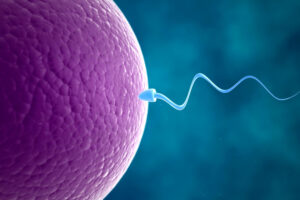Are you thinking about fertility treatments but finding it hard to decide between IVF and IUI? You’re not alone in this dilemma.
Both IVF and IUI can significantly impact your fertility journey with each treatment option offering its own set of advantages, but making the right choice is crucial for success. This blog serves as your guide to understanding these two treatments and determining which one might be the best fit for you. Read on to learn more.
What is IUI Infertility Treatment?
IUI, often called a more natural fertility treatment, involves a carefully directed process aimed at optimizing the chances of conception. The IUI process is straightforward and relatively painless. It consists of two simple steps:
Step 1- Sperm Collection and Preparation:
- First, doctors collect a sperm sample from the male partner or a donor.
- The collected sample undergoes “washing.” During washing, the sperm is carefully purified to remove debris and pick only the healthiest and most motile sperm.
Step 2- Insemination:
- Once the sperm is prepared, it is introduced into the uterus. This process is usually quick and painless and typically doesn’t need anesthesia.
- The objective is to deposit the sperm directly into the uterus, closer to the fallopian tubes where fertilization takes place, thereby enhancing the likelihood of conception compared to natural pregnancy.
What is IVF Treatment?
IVF, or In Vitro Fertilization, is a popular method of assisted reproductive technology (ART) that helps individuals and couples overcome infertility and achieve pregnancy. It’s a big procedure involving several steps listed below:
- Ovarian Stimulation
Fertility medications are administered to the individual undergoing IVF. These medications stimulate the ovaries to produce multiple eggs, rather than the single egg produced during a natural menstrual cycle.
- Egg Retrieval
Once the eggs have matured, they are retrieved from the ovaries through a minor surgical procedure called follicular aspiration.
- Fertilization
The retrieved eggs are then combined with sperm in a laboratory, where fertilization takes place. Depending on the circumstances, fertilization can occur through conventional IVF or through intracytoplasmic sperm injection (ICSI), where a single sperm is injected into an egg.
- Embryo Culture
The fertilized eggs, now called embryos, are nurtured in a controlled laboratory environment for 3-5 days.
- Embryo Transfer
Once the embryos have reached a suitable stage of development, one or more of the healthiest embryos are selected for transfer into the uterus.
What are the Differences Between – IUI and IVF?
Here are the major differences between IVF and IUI:
1. Location of Fertilization:
- IUI: Fertilization occurs inside the woman’s body, specifically within the uterus.
- IVF: Fertilization takes place outside the body, in a laboratory setting.
2. Complexity:
- IUI: Relatively simple and less invasive compared to IVF.
- IVF: More complex and involves multiple steps than IVF treatment.
3. Success Rates:
- IUI: Typically has a lower success rate compared to IVF, ranging from 10-20% per cycle. Success rates with injections may reach 18-20%.
- IVF: Generally offers a higher success rate, with success rates varying based on factors such as age, reproductive history, and underlying infertility causes. Success rates may range from 40-60% per cycle, depending on individual circumstances.
4. Cost:
- IUI: Generally less expensive than IVF, making it a more accessible option for some individuals and couples.
- IVF: IVF typically incurs higher costs compared to IUI due to the complexity of the procedure and the additional steps involved. It can be around 10 times costlier than IUI fertility treatment.
5. Time Taken:
- IUI: With IUI, the window to achieve pregnancy is relatively shorter after starting the treatment.
- IVF: IVF treatment may require undergoing 2-3 cycles to increase the likelihood of successful pregnancy.
What’s Better for You Between IUI vs. IVF?
The decision to pursue IUI or IVF depends on individual circumstances.
Seek IUI fertility treatment in the following situations:
- Unexplained Infertility: When conception remains a dream despite regular attempts.
- Mild Male Infertility: For cases of minor sperm abnormalities or low sperm count not requiring invasive treatments.
- Cervical Issues: Addressing challenges with cervical mucus hindering sperm-egg interaction.
- Donor Sperm: Utilized by individuals or couples for conception assistance.
Seek IVF Treatment treatment in the following situations:
- Tubal Factor Infertility: Blockages or damage to fallopian tubes delay natural fertilization.
- Severe Male Factor Infertility: Significantly reduced sperm count, poor motility, or abnormal morphology.
- Advanced Maternal Age: Declining fertility for women over 35 due to age-related factors.
- Endometriosis: Advanced stages of Endometriosis turn challenging.
- Unsuccessful Treatments: When other fertility methods, like IUI, seek no success.
- Genetic Disorders: Preimplantation genetic testing during IVF can help couples to screen embryos for abnormalities.
Make an Informed Choice
While both IVF and IUI offer paths to parenthood, their suitability varies based on individual circumstances. Factors such as fertility diagnosis, reproductive history, and personal preferences play crucial roles in determining the most appropriate treatment option.
Before deciding, it’s essential to consult with a top fertility specialist such as The Boon IVF. With years of renowned expertise in IUI and IVF techniques and state-of-the-art laboratories, The Boon IVF stands as the best IVF center in Hyderabad. Known for its holistic personalized approach, their experts ensure you receive the best possible care. Reach out to The Boon IVF today and get on the path to parenthood with confidence.


